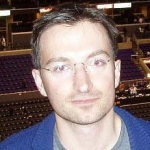Cost: £1,500
Book a place
Overview
This short course covers the fundamental theory, algorithms and methods underpinning media processing and delivery over the internet and over wireless. It's aimed at those working in video content delivery or video content engineering.
The course starts by summarising the fundamentals of analogue and digital transmission of multimedia.
You'll then examine specific aspects of:
- services for media transport over IP
- Internet Protocol television (IPTV)
- middleware for multimedia transport
- interactive multimedia services
The course is run by UCL's Department of Electronic and Electrical Engineering.
Who this course is for
The department's courses/CPD modules are aimed at those working in the telecommunications industry such as researchers, engineers, IT professionals and managers.
They're particularly suited to graduates in electronic and electrical engineering, physics, communications engineering and computer science who want to further their knowledge on a particular topic, or work towards a Master's degree.
Pre-requisites
You should have either:
- a BEng/MEng in Electronic Engineering, Computer Science, or similar discipline
- at least two years' industrial experience in the content engineering or content delivery sector, including roles that would require the use of programming libraries or programming tools/signal processing
Course content
The course covers the following:
- fundamentals of analogue and digital multimedia transmission
- MPEG formats for media coding and transport
- services and transport over IP
- IPTV
- middleware for multimedia support over heterogeneous networks and devices
- experimentation with real-time video streaming systems
Dates, assessment and certificates
The course runs over eight weeks, with an optional assessment.
Classes will be held from 9am to 1pm every Thursday.
If you complete the course but not the assessment, you'll receive a certificate of attendance.
If you take and pass the assessment you'll get a certificate stating this, which includes your pass level.
Benefits of UCL's Electronics and Electrical Engineering CPD courses
You can take this course as a standalone (one-off) course/module, or accumulate it towards a Master's degree (up to two standalone modules can be transferred towards the flexible Master's degree).
Benefits to the employee
The programme offers the opportunity for professional people working in the telecommunications industry to develop their career, be able to respond to changes in their environment, and learn while they earn. It's also designed to give you the opportunity of working towards an MSc qualification from an academic institution whose quality is recognised world-wide.
Benefits to employers
Our flexible CPD courses enhance staff motivation and assists in the recruitment and retention of high-quality staff. It enables your company to keep ahead of the competition by tapping into world-leading research, and to profit from UCL's world class Telecommunications and Business expertise.
View the full range of related courses available.
Learning outcomes
On completion of this course, you should be able to:
- use fundamental knowledge to investigate new and emerging technologies
- identify, classify and describe the performance of systems and components through the use of analytical methods and modelling techniques
- generate an innovative design for multimedia products, systems, components or processes to fulfil new needs of emerging media communications systems
- understand current practice in internet multimedia systems and its limitations, and likely new developments
- apply multimedia content and traffic engineering techniques taking account of a range of commercial and industrial constraints (via talks by invited guest lecturers from industry)
Course team

Dr Ioannis Andreopoulos
Ioannis is a Reader in Data and Signal Processing Systems in the UCL Department of Electronic & Electrical Engineering. His research interests include signal processing and deep neural networks, error-tolerant computing, multimedia systems, and wireless protocols for low-end systems (e.g. sensor networks).
Book a place
Course information last modified: 30 Nov 2022, 16:01
 Close
Close

